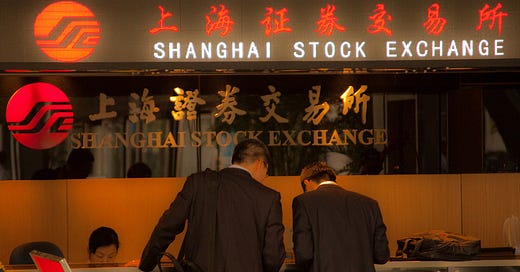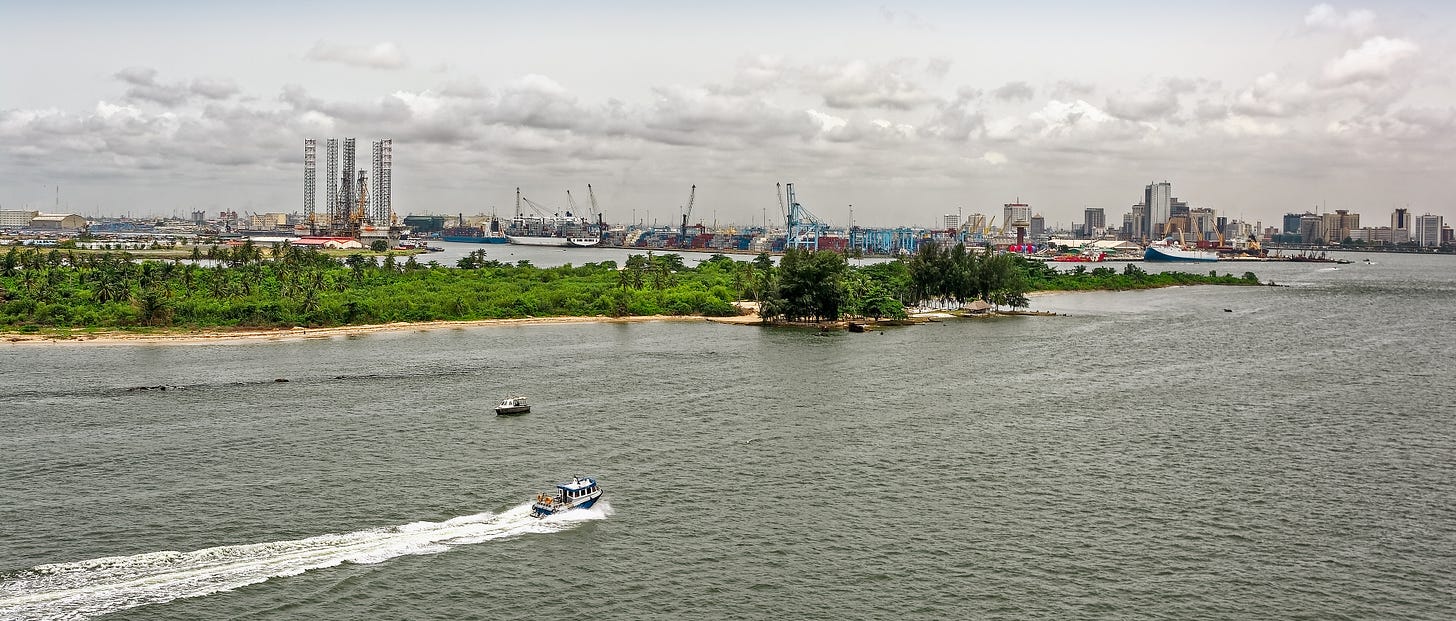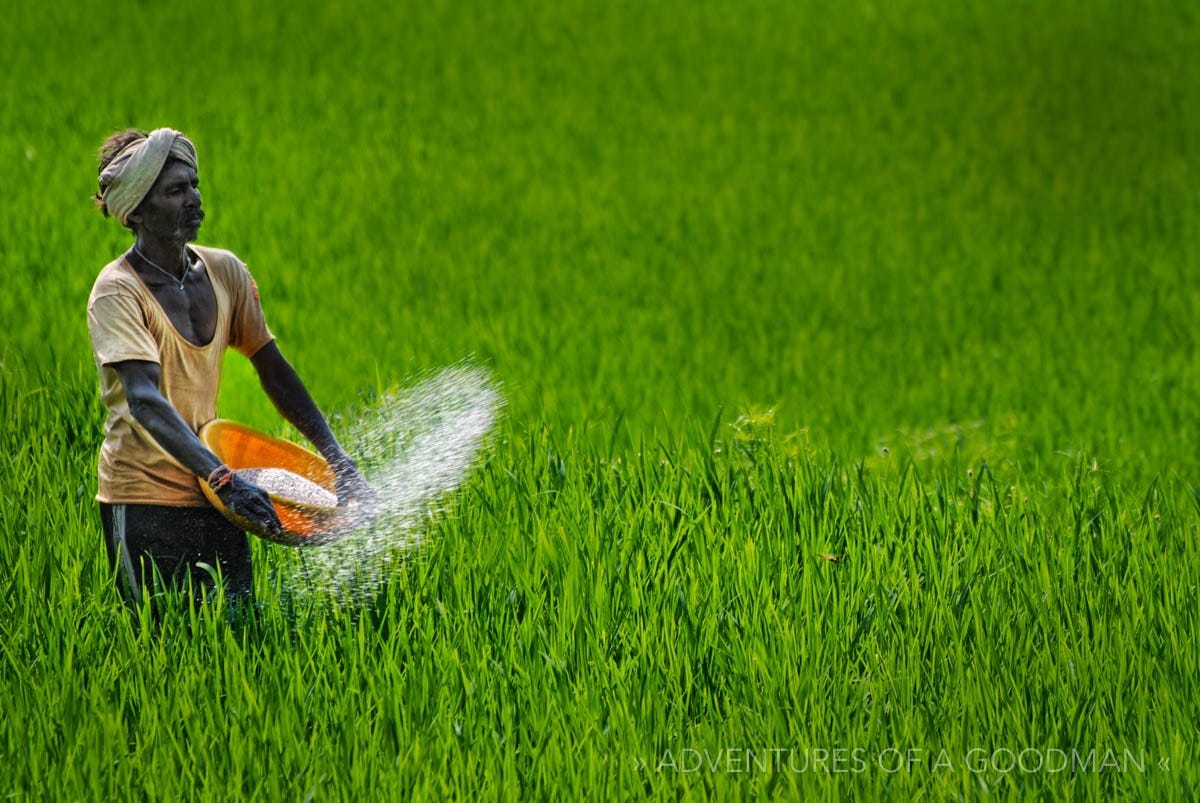Emerging Markets Monitor - Sept. 19
China Stocks and the Coming Party Congress, S. Korea Semiconductor Stocks Tick Down, Nigeria Dollar Turbulence, Saudi Aviation, India Bans Rice Exports
The Top 5 Stories Shaping Emerging Markets from Global Media - Sept. 19
China Stocks May Miss Communist Party Congress Boost: Goldman
Bloomberg
“China’s twice-a-decade Communist Party congress may fail to give equity markets a boost this time around as Covid restrictions and a property market slump add to pressures on the economy, according to Goldman Sachs Group Inc.”
“Growth momentum has been historically strong in the run up to the key political event, but ‘it’s uncertain whether the historical precedents will be valid’ for the Oct. 16 gathering, wrote strategists including Kinger Lau. Goldman expects China’s Zero Covid policy, which has been offsetting the impact of policy easing measures, to stay until the second quarter of 2023.”
“The MSCI China Index has typically generated about 2% returns in the month before the Party congress in the past, with commodity cyclicals and select consumer sectors trading well, the strategists said in a Sunday note.”
“The gauge fell as much as 1.4% Monday, taking losses this month to more than 8%. The underperformance versus benchmarks for regional and global stocks comes amid resurgent Covid lockdowns and property market turmoil.” John Cheng reports.
South Korea Semiconductor Stocks Trend Down on Slowing Orders
Korea Herald
“South Korean semiconductor stocks are treading on a bumpy road as slowing orders in the chip industry plaguing memory powerhouses Samsung Electronics and SK hynix have dampened prospects.”
“Since January, Samsung Electronics' share price has fallen nearly 30 percent, while its hometown rival SK hynix has seen its share price drop over 30 percent. On top of this, stock analysts are revising down the price target of the two memory chip giants, and expecting the quarterly profit to turn slimmer compared to the previous year.”
“The latest to do so is NH Investment & Securities analyst Do Hyun-woo. Do revised down Samsung's price target from 75,000 won ($53.90) apiece to 70,000 each. Samsung Electronics stocks came to close at 56,400 won apiece Monday on the Korea Exchange.”
“..On Wednesday, analyst Park Sung-soon of Cape Investment & Securities dragged down the Samsung Electronics stock price target from 90,000 won to 80,000 won apiece.” Korea Herald reports.
Turbulence in Nigeria Dollar Markets Hits Investors, Airlines
Financial Times
“So tight is the supply of dollars in Nigeria these days that even big international airlines are struggling to repatriate revenue from ticket sales. Emirates announced it would suspend flights to and from Nigeria from September, only resuming flights to Lagos when the central bank released $265mn of the estimated $464mn that airlines say it was sitting on.”
“Currency traders and investors say Nigeria’s chronic dollar shortage, a constant complaint of businesses operating in the country, has recently tipped into crisis. The naira, which trades officially at N421 to the dollar, has fallen to N700 on the parallel market, with talk that it could weaken further.”
“‘It’s really a perfect storm,’ said Iyin Aboyeji, a fintech entrepreneur in Lagos. ‘No one could have foreseen it: low oil production and high dollar demand.’ On the supply side, dollar revenues from oil have plummeted because of massive theft, pushing down official daily production of crude to 1.1mn barrels, far below Nigeria’s Opec quota of 1.8mn b/d.”
“…Nigeria will spend an estimated $9.6bn on petroleum subsidies this year, about 2 per cent of gross domestic product and almost 10 times the budgeted amount. On the demand side, August is always a crunch month because an estimated 100,000 Nigerians need dollars for tuition fees abroad.” The FT reports.
Saudi Arabia to Emerge as ‘Major Player’ in Aviation: Boeing
The National
“Saudi Arabia has the potential to become a big player in the Middle East's aviation industry, alongside regional heavyweights UAE and Qatar, as the kingdom embarks on a plan to develop its air transport sector, a Boeing executive said.”
“‘There are a lot of aspirations right now in the kingdom of Saudi Arabia,’ Randy Heisey, Boeing's managing director of commercial marketing for the Middle East, Africa, Russia and Central Asia regions, told reporters in Dubai on Monday.”
“‘If they're able to execute on the Vision 2030, they may be a major player in the growth here.’ Asked whether Boeing is in discussions for aircraft orders by a planned Saudi Arabian carrier, he referred the question to the airline for details on its business plan.”
“The kingdom's Saudi Aviation Strategy calls for tripling annual passenger traffic to 330 million by 2030, boosting the number of destinations to 250 from 99 at present and establishing a new flag carrier. This strategy is backed by $100 billion in investments from the government and private sector.”
“Saudi Arabia's push to develop its air transport sector is part of the Vision 2030 plan aimed at diversifying its economy away from oil.”
“The region’s passenger traffic and commercial fleet is projected to more than double over the next two decades, according to Boeing's latest Commercial Market Outlook. Middle East airlines will require 2,980 new planes valued at $765bn to serve passengers and trade over the next 20 years.” Deena Kamel reports.
India Rice Export Ban to Reverberate Across Asia
CNBC
“India, the world’s largest rice exporter, has banned shipments of broken rice — a move that will reverberate across Asia, according to Nomura. In a bid to control domestic prices, the government banned exports of broken rice and slapped a 20% export tax on several varieties of rice starting Sept. 9.”
“Nomura said the impact on Asia will be uneven, and the Philippines and Indonesia will be most vulnerable to the ban. India accounts for approximately 40% of global rice shipments, exporting to more than 150 countries.”
“Exports reached 21.5 million tons in 2021. That’s more than the total shipment from the next four biggest exporters of the grain — Thailand, Vietnam, Pakistan and the United States, Reuters reported.”
“…Big rice-producing India states such as West Bengal, Bihar and Uttar Pradesh are receiving 30% to 40% less rainfall, Varma said. Although rainfall increased toward the end of August, “the more delayed the sowing [of rice] is, the greater is the risk that yield will be lower.”
“Earlier this year, the South Asian nation curbed wheat and sugar exports to control rising local prices as the Russia-Ukraine war sent global food markets into turmoil.” CNBC Asia reports.
“Being challenged in life is inevitable, being defeated is optional.” – Roger Crawford







